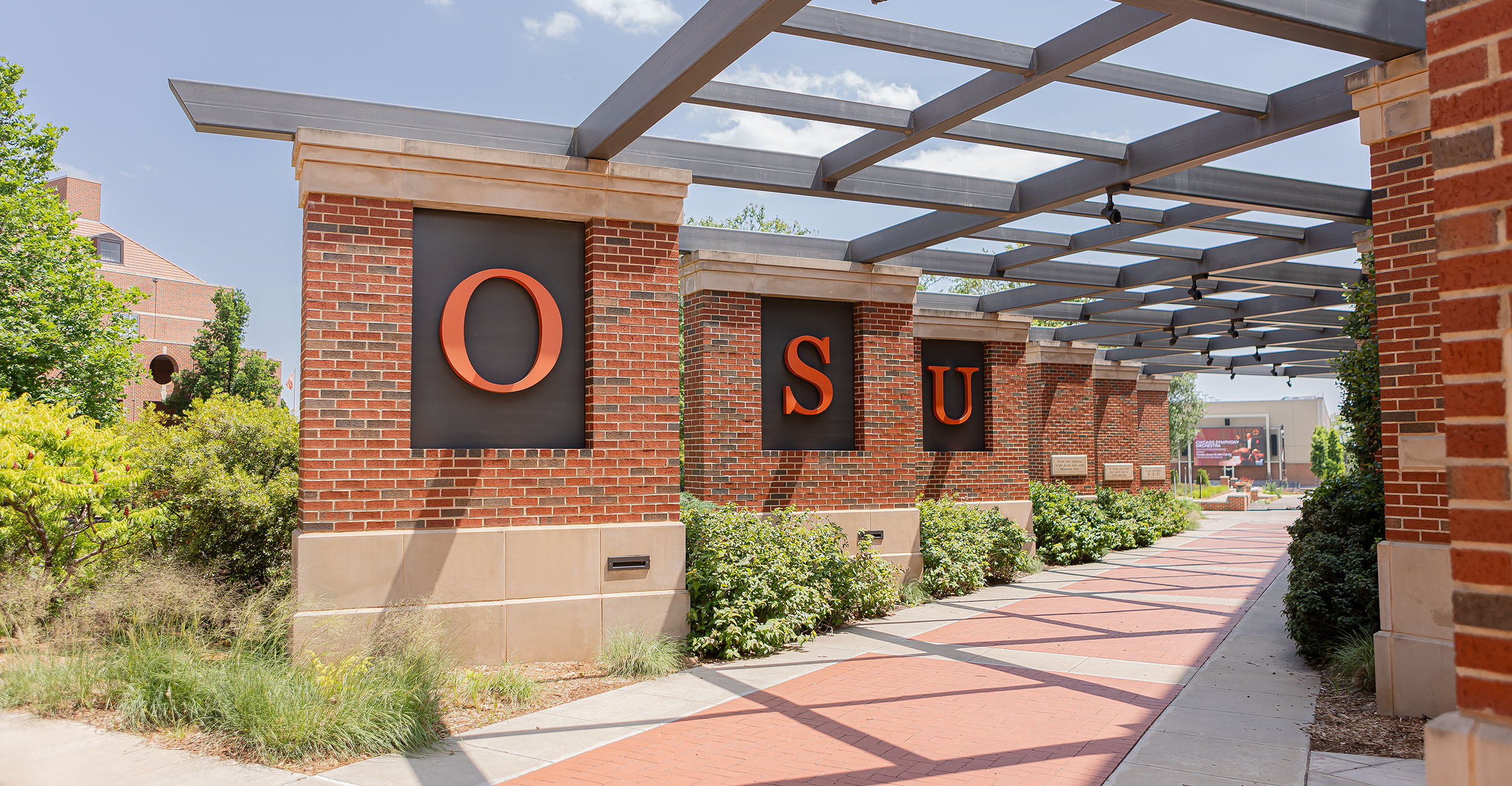
Summer 2025 Niblack Scholars complete research experience
Thursday, August 14, 2025
Media Contact: Sydney Trainor | Communications and Media Relations Specialist | 405-744-9782 | sydney.trainor@okstate.edu
For some Oklahoma State University undergraduates, the most valuable lessons aren’t found in a textbook — they’re discovered in the lab.
Through the Niblack Scholars Program, students step into the world of scientific research early in their academic careers, gaining experience that shapes their professional futures.
The three-semester program helps participants explore potential career paths, prepare for the workforce, and decide whether graduate school is the right next step.
Made possible by the generosity of OSU alumnus Dr. John Niblack, the program funds both the student researchers and their faculty mentors, creating a unique environment for hands-on learning.
During the fall and spring semesters, scholars work two to five hours per week alongside their mentors, expanding to at least 20 hours each week in the summer.
This summer, five more students are putting the finishing touches on their projects and will present their findings to Dr. Niblack in October.
Kathryn Burton
Q: What is the focus of your NRS research project?
A: My project focuses on ribosomal profiling in the rumen of cattle to study how gene expression is regulated at the translational level. By analyzing which mRNAs are actively being translated, we can better understand how the rumen microbiome interacts with its host and how these processes influence cattle health and productivity. This research has potential applications in improving livestock management and overall agricultural efficiency.
Q: How has participating in the NRS program impacted your college experience?
A: Participating in the Niblack Research Scholars program has been transformative. It’s given me hands-on experience in advanced lab techniques, helped me build confidence in my abilities as a scientist, and connected me with incredible mentors and peers. It’s also shown me how exciting and rewarding research can be, which has solidified my passion for pursuing science beyond the classroom.
Q: What advice would you give those considering an undergraduate research opportunity?
A: Don’t be afraid to jump in, even if you feel underqualified! It’s completely okay
to not know everything — no one is born knowing every little detail about a subject.
What really matters is showing that you’re curious, motivated, and willing to learn.
Ask questions, take initiative, and don’t be afraid to make mistakes because that’s
how you grow. Research is all about learning as you go, and mentors value students
who are eager to develop their skills.
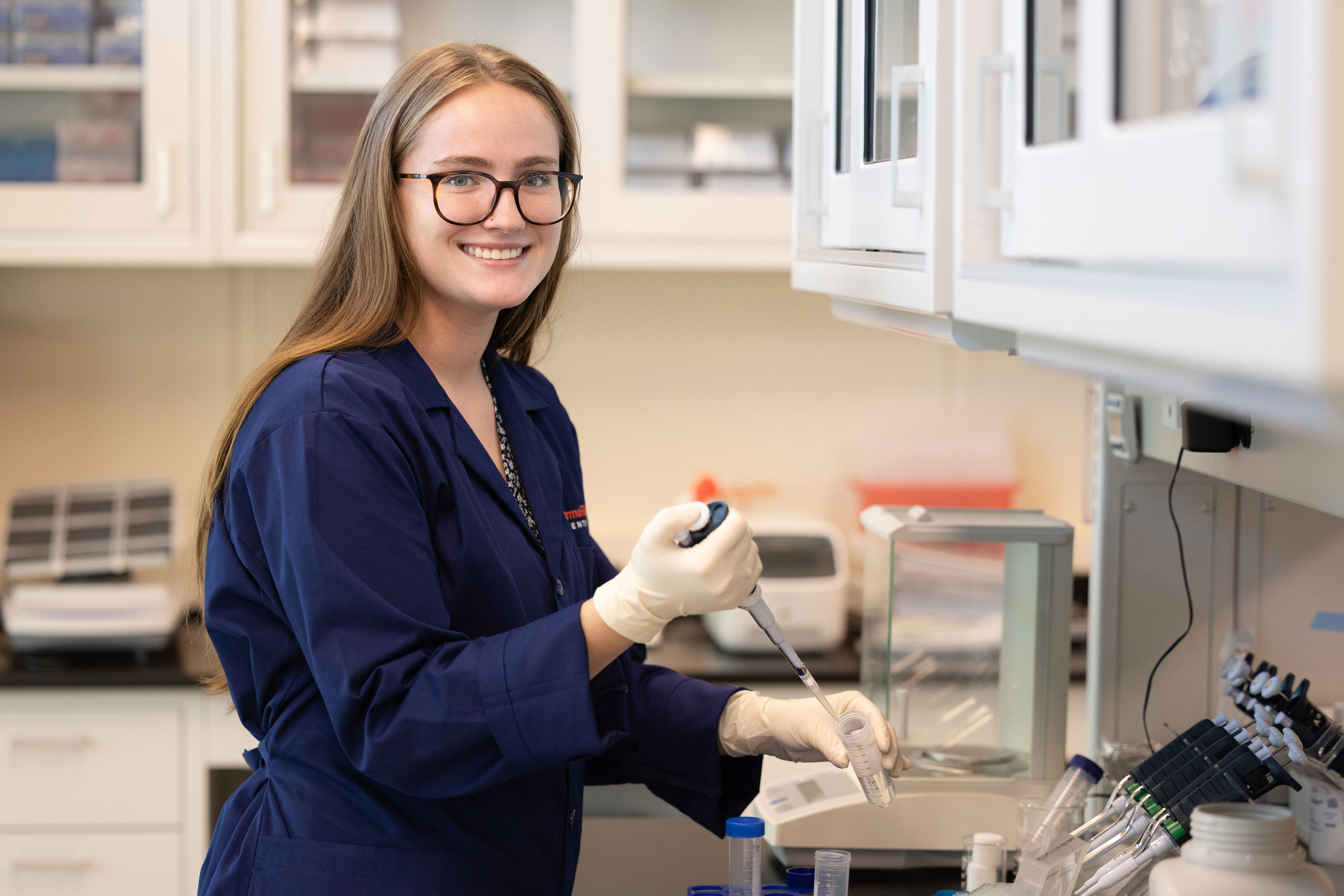
Q: Why did you choose Oklahoma State University?
I chose OSU because of its strong sense of community and the opportunities it offers for undergraduate research. From the moment I visited, I felt welcomed and supported. OSU provides a balance of high-quality academics, accessible faculty, and programs like Niblack that truly invest in their students.
Q: What has been your most favorite part of OSU so far?
A: My favorite part of OSU has been the relationships I’ve built — both in and out of the lab. From late nights studying with friends to celebrating research successes with my graduate student mentor, these connections have made my college experience incredibly fulfilling even when classes can feel difficult. I also love the school spirit and the welcoming atmosphere on campus.
Q: What are your future goals?
A: My goal is to pursue a Ph.D. in biochemistry or molecular biology and eventually lead my own research lab. I want to contribute to our understanding of cellular mechanisms and mentor the next generation of scientists. Beyond my career, I hope to keep learning, stay curious and build a life where I can balance my passion for science with meaningful personal connections.
Olivia Emerson
Q: What is the focus of your NRS research project?
A: My NRS research project focuses on the auditory effects of ear notching in mice. Ear notching is a common lab technique used to identify and genotype organisms by creating small holes in the ear. Although this practice may seem insignificant, altering the developing and sensitive pinna impacts ear morphology, potentially affecting auditory function. The findings from this study have broad implications for lab methodologies, particularly in research involving auditory sensitivities, such as Fragile X Syndrome (FXS), a key focus of the McCullagh Lab.
Q: How has participating in the NRS program impacted your college experience?
A: Participating in the NRS program has allowed me to turn my curiosity into action and find my niche within my research lab. Through this experience, I have built meaningful relationships and formed new connections. Additionally, the program has enriched my scientific knowledge and sharpened intangible skills such as discipline, time-management, and the ability to effectively communicate scientific topics, skills I plan to carry with me after graduation.
Q: What advice would you give those considering an undergraduate research opportunity?
A: Don’t count yourself out! It can be intimidating to get involved in research, particularly in the STEM field, but everyone starts somewhere. There is a place for you and your interests in research. Approach the project/opportunity with an open mind and willingness to get out of your comfort zone, as the experience will enhance your academic and personal growth.
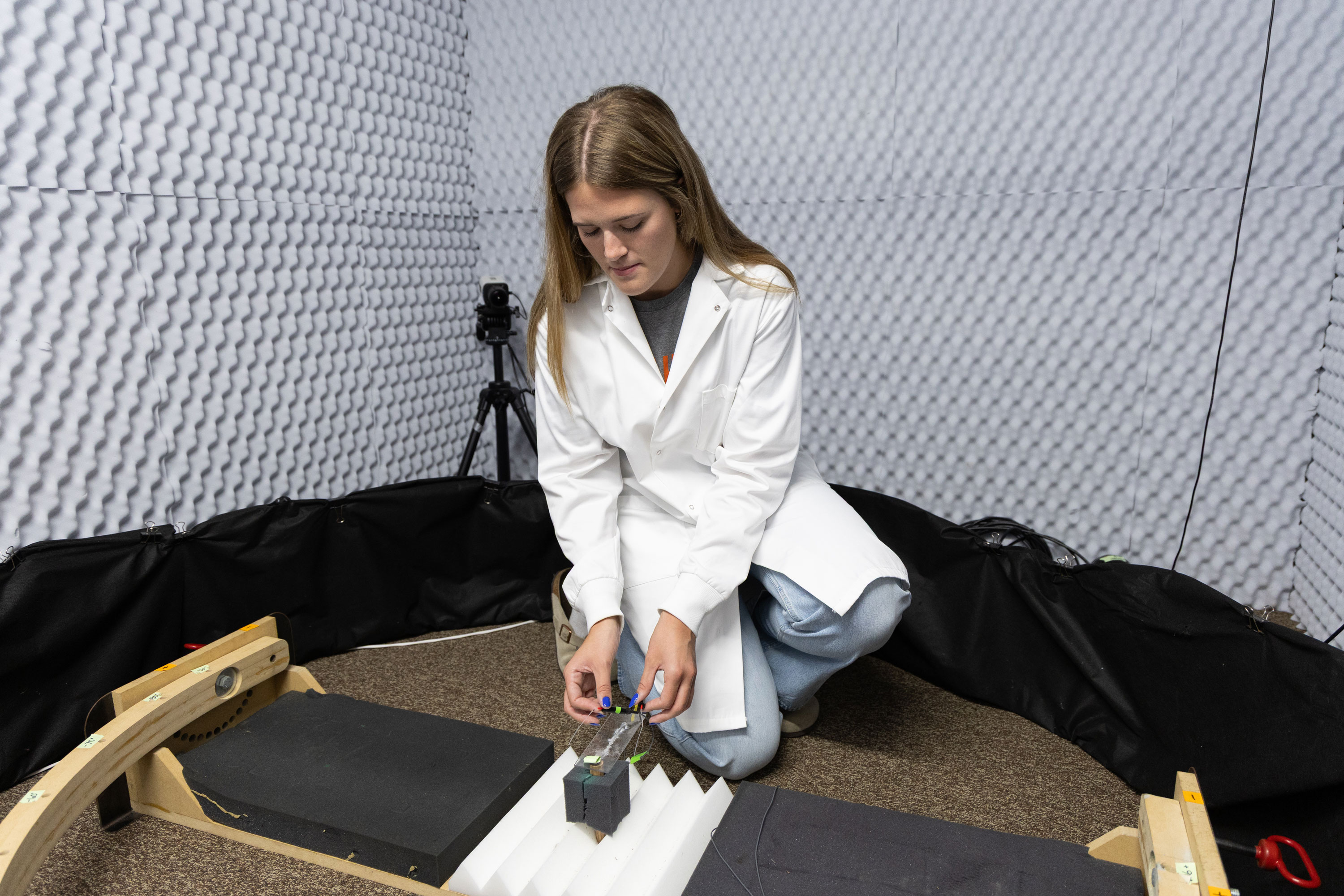
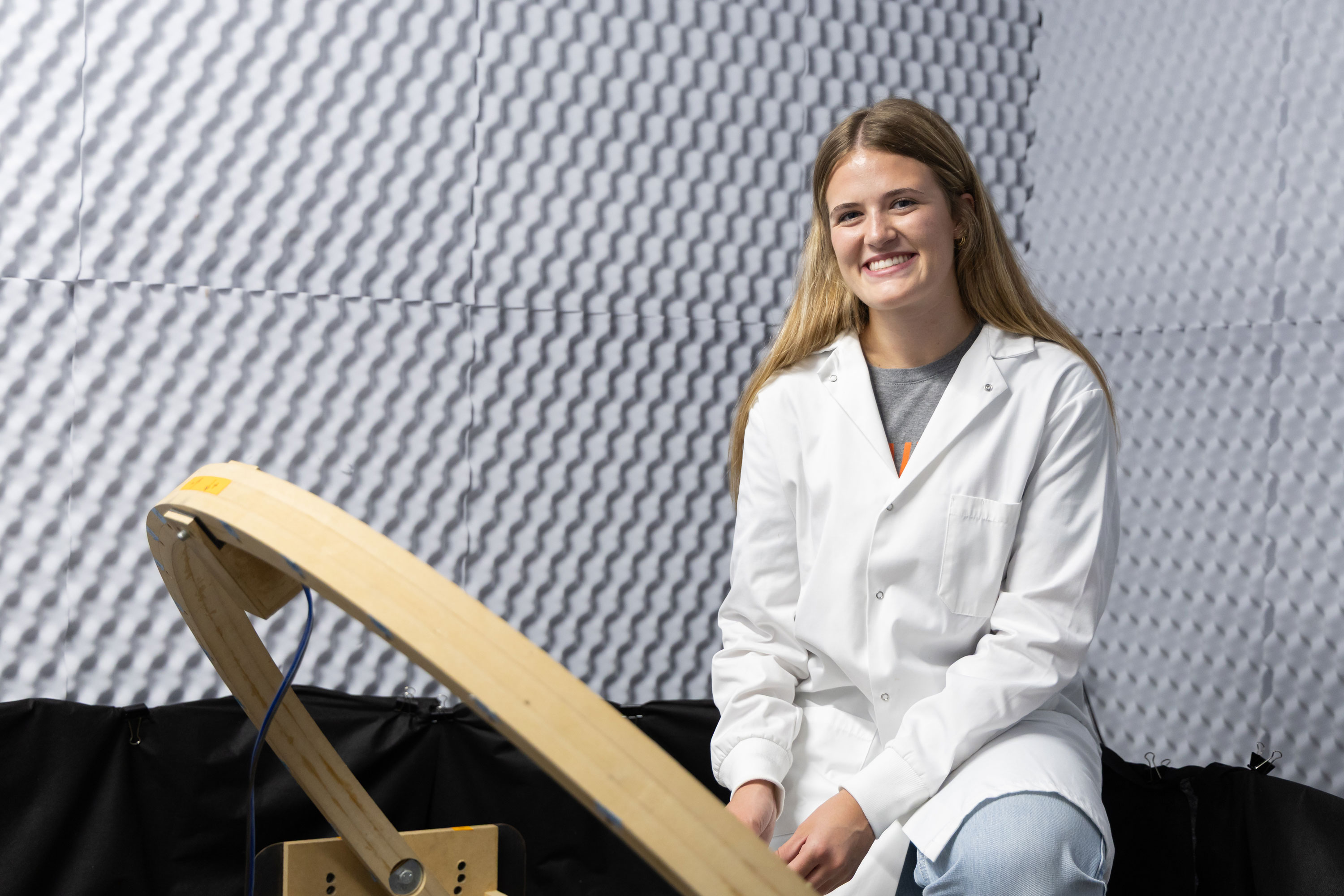
Q: Why did you choose Oklahoma State University?
A: When I was applying to colleges, my older sisters were already attending OSU as a sophomore and freshman, and I had heard nothing but positive feedback about their experiences. After taking a campus tour, I was convinced that OSU was the right fit for me. Everyone I met was friendly and welcoming, which stood in contrast to other schools I considered. Additionally, the wide range of research opportunities available greatly appealed to me.
Q: What has been your most memorable part of OSU so far?
A: I’ve made many incredible memories at OSU, but one that stands out is attending game days at Boone Pickens Stadium. The energy and atmosphere are unmatched, and it’s a fun way to connect with friends and my family who drive up from Tulsa to be there.
Q: What are your future goals?
A: I plan to attend medical school to pursue my goals of becoming a physician. While I have not yet decided on a specific specialty, I am interested in dermatology. In addition to my professional aspirations, I hope to maintain my current hobbies of hiking, especially at National Parks, baking, and spending quality time with family and friends.
Amber Meeker
Q: What is the objective of your NRS research project?
A: The purpose of this study is to understand the mechanism of how microvesicles derived from airway epithelial cells regulate the function of macrophages during M. abscessus infection in cell culture. Understanding the interactions between microvessicles and macrophage activation could lead to therapeutic breakthroughs for cystic fibrosis (CF) patients. For example, microvesicles could be used to help create future vaccines, which is particularly important as M. abscessus is known to become antibiotic-resistant and it commonly infects those with CF.
Q: How has participating in the NRS program impacted your college experience?
A: Throughout my college experience I have looked up to the Niblack researchers as it is known as a prestigious scholarship given to those working their hardest in their research field. Getting the Niblack scholarship helped me realize how much I have achieved as an undergraduate and inspired me to help others get into research. I have also met others in various fields dedicated to research and gained valuable networking opportunities.
Q: What advice would you give those considering an undergraduate research opportunity?
A: There are so many research opportunities on OSU’s campus. My first piece of advice is to try research no matter what area of study is your focus. My second piece of advice is to start research as soon as possible. Learning about how research works early on helped shape my college experience. I have gained so many opportunities to learn in a hands-on environment from research.
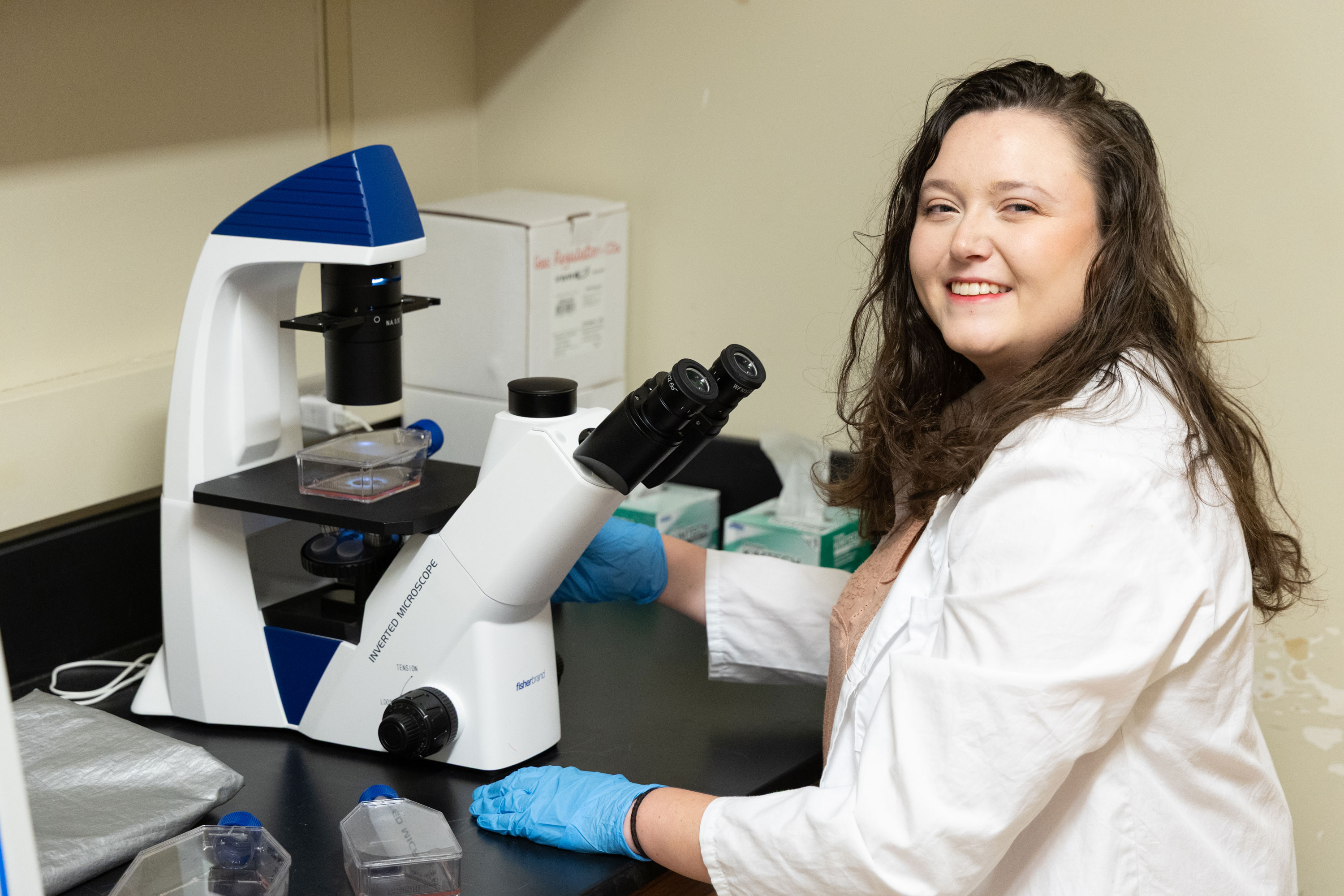
Q: Why did you choose Oklahoma State University?
A: When I began looking at colleges, my sister and many friends said that they choose a school that felt like home. After touring most of the schools in my home state of South Carolina, I thought I would never experience this feeling. However, while I was at a horse show in Oklahoma City, I decided to look at OSU’s campus. The second I reached the campus I knew this was the place I was meant to be.
Q: What has been your most favorite part of OSU so far?
A: One of my favorite parts of OSU is that in the fall there are so many different events to attend and join. For example, I love when the campus fountain is turned orange during homecoming and watching the overall campus transformation during that week. I also love how such a large campus feels so small. The community is very welcoming, and I always see at least one friend while walking to class.
Q: What are your future goals?
A: I hope to further my education and obtain a veterinary medicine degree in addition to a master’s degree in public health or environmental studies. I aspire to become an exotic veterinarian that focuses on conservation, education, and research. Exotic animal medicine consists of specialized care for unique species that often have limited medical backgrounds. Because of this, I hope to continue my research experience so I can contribute to the exotic animal medical field.
Jake Patterson
Q: What is the objective of your NRS research project?
A: Cystic fibrosis is a genetic condition that predisposes individuals to opportunistic pathogens. One of these pathogens that chronically infect the lungs is Pseudomonas aeruginosa. Pseudomonas reduces the life expectancy of CF patients by nearly half, and the damage it causes to their lungs progressively decreases their quality of life. As there is no effective treatment for these Pseudomonas infections, the objective of my project has been to isolate and test a protein produced by some strains of Pseudomonas that may be able to treat, and hopefully clear, these chronic infections.
Q: How has participating in the NRS program impacted your college experience?
A: The Niblack Research Scholars program helped me pay for college while getting valuable experience in the lab instead of getting a job that was less relevant to my future goals. I was accepted into multiple M.D./Ph.D. programs, and I attribute much of my application’s strength to the research the Niblack Research Scholars program allowed me to perform. In addition, networking with the other scholars in the program has connected me with many individuals that will be exemplary in their fields, many of whom I still am friends with.
Q: What advice would you give those considering an undergraduate research opportunity?
A: My advice to anyone that is even considering research is to try it. Some may not like it, but many, myself included, fall in love with it. Undergraduate research made me completely change my career path. I planned on going to medical school to become a physician, but now I am pursuing a career path that will let me pursue research as well. It may feel intimidating to try to reach out to a professor to begin research, but so many professors would love to tell you about their research and get you involved in the lab, so just go for it!
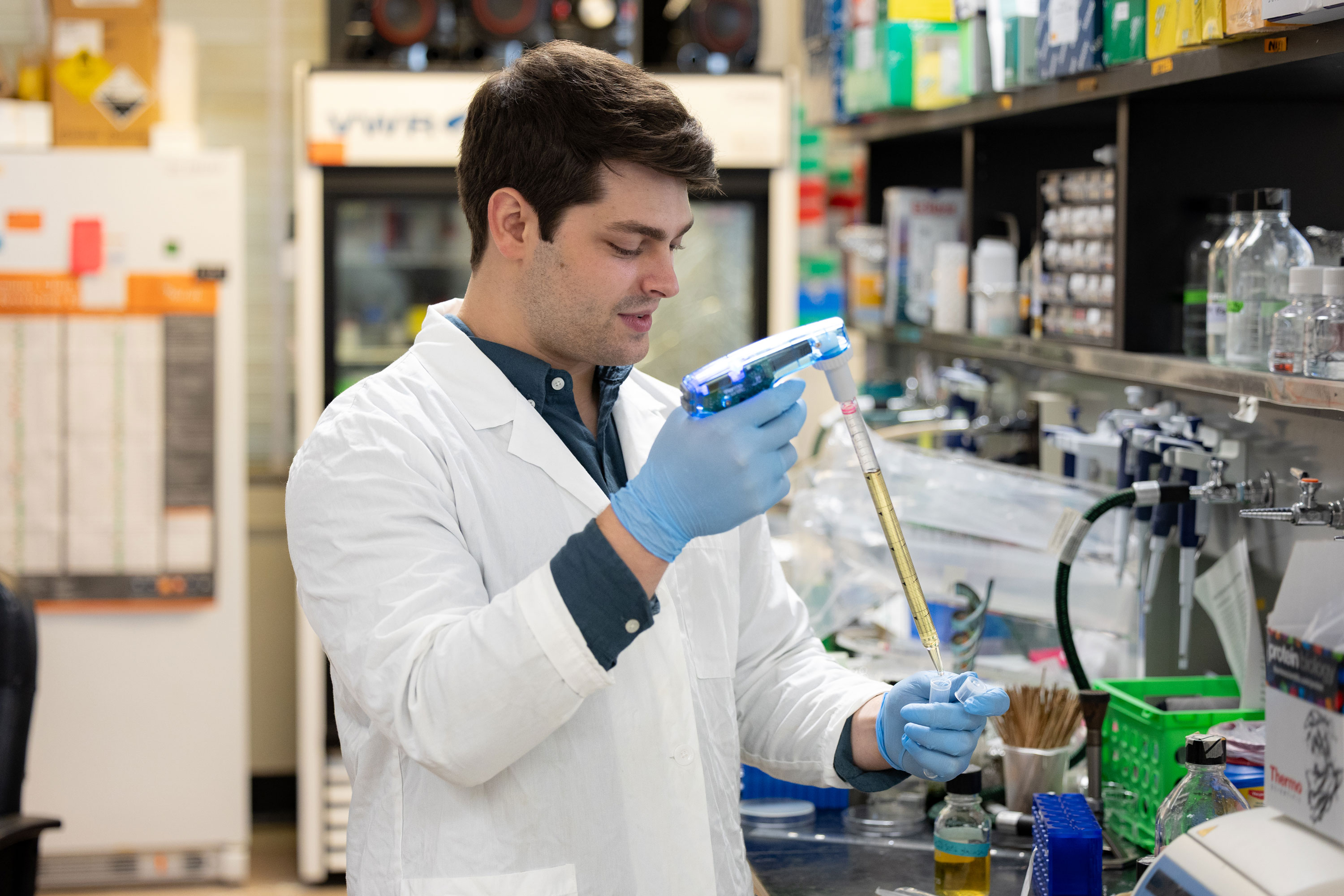
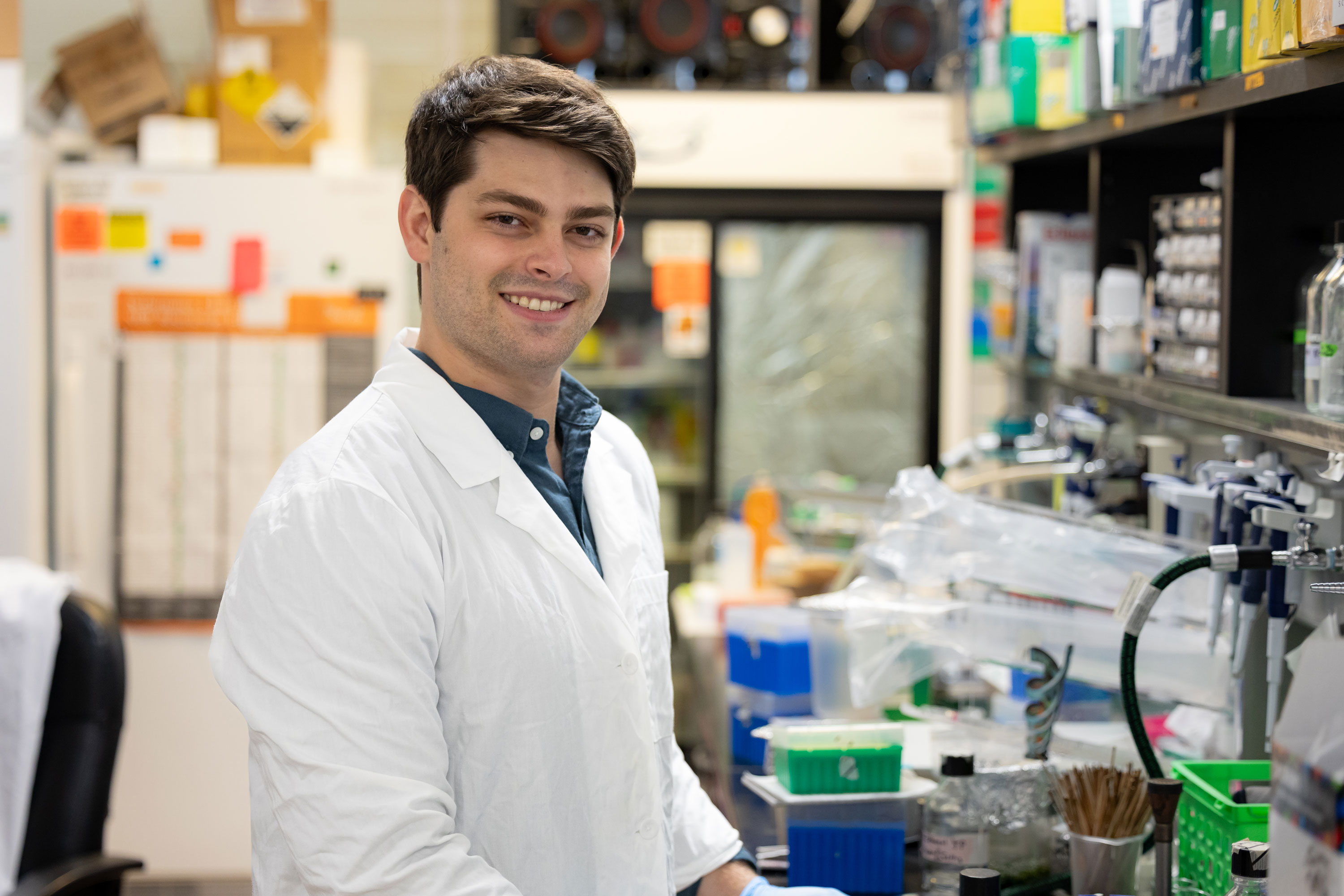
Q: Why did you choose Oklahoma State University?
A: OSU’s rich history regarding scientific research and advancement is part of what drew me to the program. It was also important to me to stay close to my family and roots in Oklahoma. While these factors are initially what made me gravitate toward OSU, the welcoming nature and genuine kindness I felt from the OSU community is what made me stay. OSU is very special in that regard.
Q: What has been your most favorite part of OSU so far?
A: One of my favorite experiences in college was when I was chosen to represent OSU at Research Day at the Capitol. Only 25 presenters from the state of Oklahoma were selected to present to legislators in Oklahoma City, and I had the honor of being one of four selected from OSU. While I was extremely grateful simply for the chance to attend, when my name was announced for the overall grand prize, I was exhilarated. My heart pounding after representing Oklahoma State at the capital was definitely a highlight of attending OSU.
Q: What are your future goals?
A: Starting in Fall of 2025 I will be attending an M.D./Ph.D. program. Completing this program will allow me to reach my end goal of becoming a physician scientist. This means I will be able to directly help patients in a clinical setting while also pushing the frontier of science in the lab. I plan on researching cancer and may specialize in oncology.
Bennet Upton
Q: What is the focus of your NRS research project?
A: My NRS research project is focused on the toxicity of three chemicals: 3,4-dichloroaniline, cadmium, and perfluoro octane sulfonic acid. Using immortalized gill, gut, and liver rainbow trout cell lines, I have shown that these chemicals can upregulate the expression of certain detoxification enzymes at concentrations previously thought to have no effect on cells. This research can inform ecotoxicologists about new water testing methods that can detect water contaminants at very low concentrations.
Q: How has participating in the NRS program impacted your college experience?
A: The Niblack Research Scholars Program has provided structure to my research journey, ultimately motivating me to dedicate more time to my work. Through this program, I’ve learned how to break down a large, complex project into manageable and achievable goals, which made my research very enjoyable and productive.
Q: What advice would you give those considering an undergraduate research opportunity?
A: Getting involved in an undergraduate research project is one of the best ways to become heavily absorbed in a topic you might be interested in. If you're considering a career in science or academia, conducting research can strengthen your scientific literacy and help clarify your long-term goals. The best way to decide whether or not to join a research lab is to schedule a meeting with a faculty member and ask them about their research (most professors love talking about their research)!
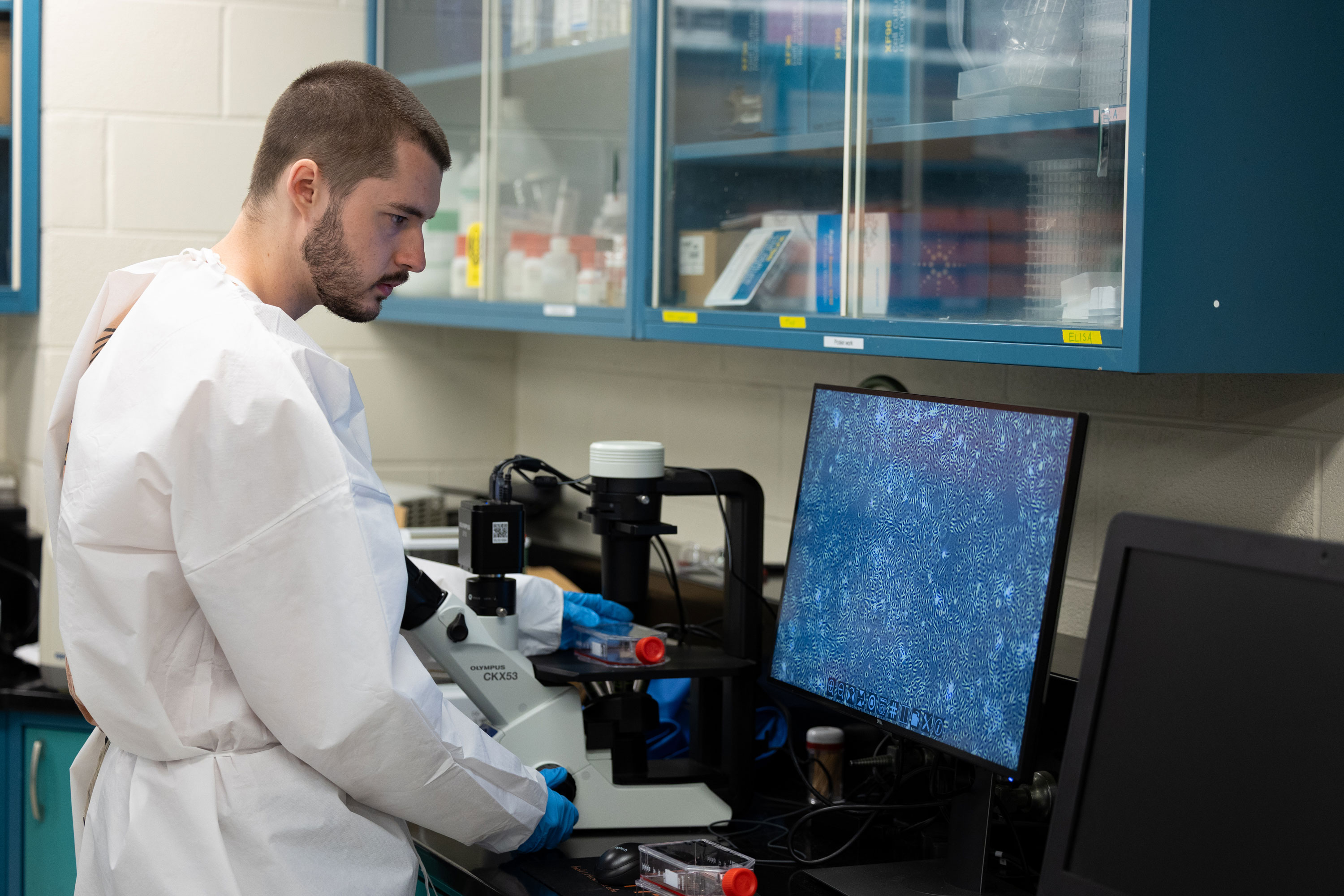
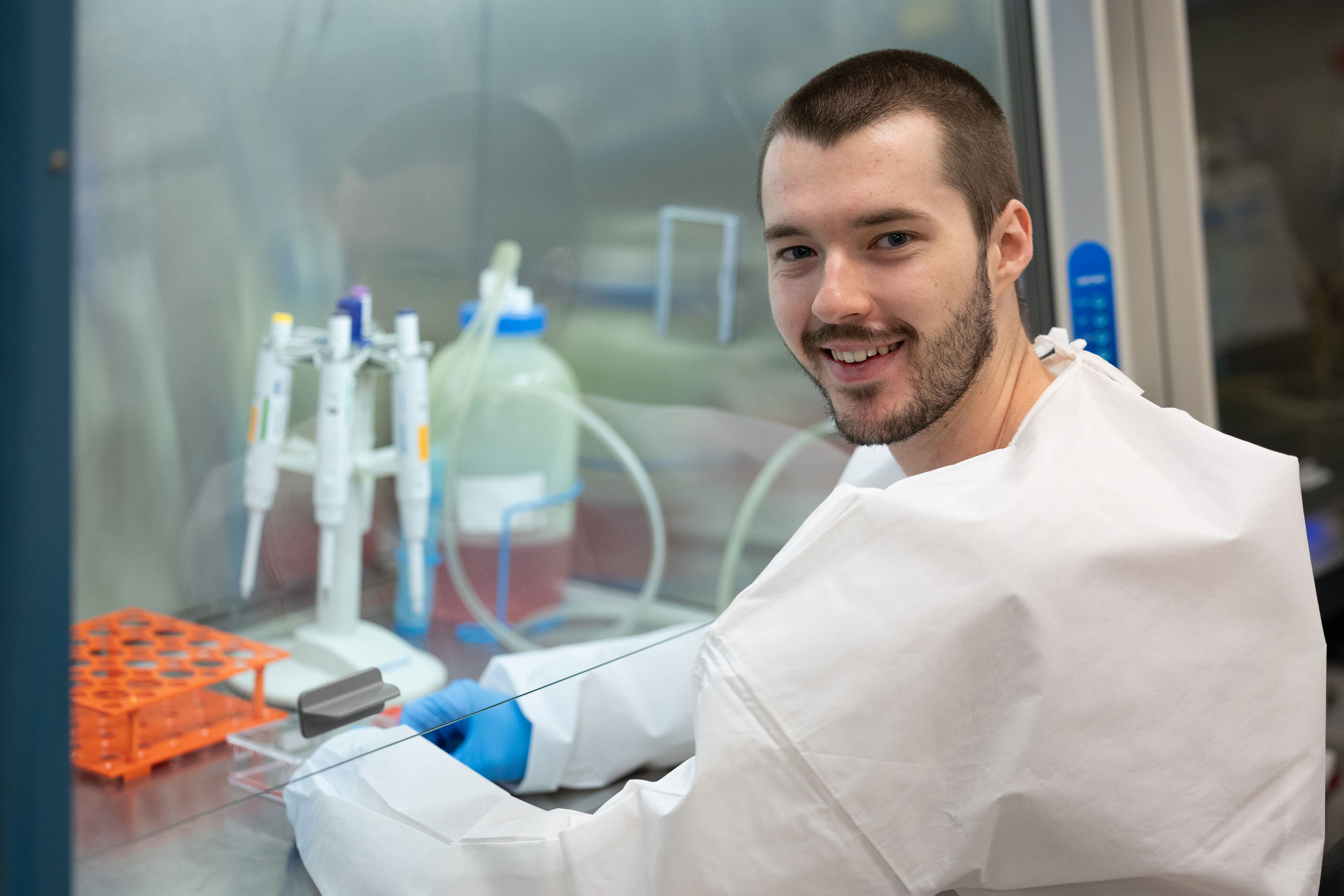
Q: Why did you choose Oklahoma State University?
A: I chose Oklahoma State University because of the research programs it offers. When searching for colleges, I knew I wanted to pick a school that centered my research interest. Getting accepted into the Freshman Research Scholarship program helped me kickstart my research journey from the instant I arrived at OSU which was not an option at many other schools.
Q: What has been your most favorite part of OSU so far?
A: My favorite part of OSU has been the trip I took to Vienna, Austria, to present my research at the SETAC Europe 2025 conference. I received a lot of support from the faculty in my department, which made me feel a part of the research community here at Oklahoma State. Getting to represent Oklahoma State at this international conference taught me how to communicate my research effectively and about the ways scientific research progresses.
Q: What are your future goals?
A: I intend to earn a Ph.D. in molecular biology and conduct research on the mechanisms viruses use to infect cells. I hope to move to Europe and advance my career by investigating newly discovered viruses and contributing to the development of novel vaccines. Ultimately, I want to channel my passion for research into work that has a meaningful, positive impact on people’s lives.
